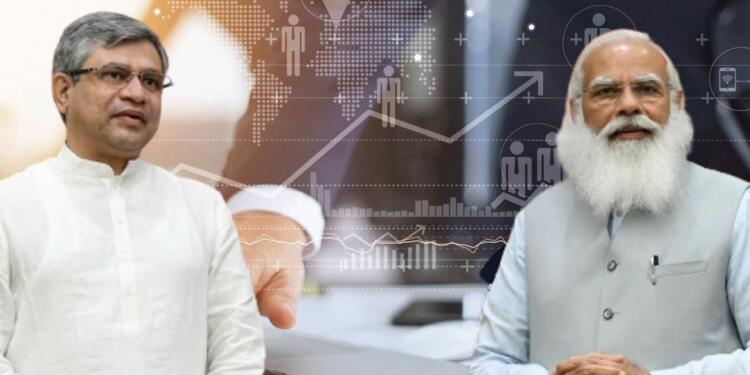Throughout the 21st century, the global tech sector has known only one big market for investment- China. The Western world has invested and fuelled its money into the Chinese tech start-ups, conglomerates, and giants. Chinese companies like Alibaba, Huawei and Tencent have witnessed stunning growth over the past two decades.
However, Xi Jinping, a madman, is at the helm of affairs in China today and he is destroying his country’s tech industry with tight regulatory measures and relentless crackdowns. The world is exiting the Chinese tech industry and India, another Asian giant rivalling China, is ready to lay down a red carpet for the overseas investors pulling themselves out of the Chinese tech sector.
China’s tech sector crisis:
China’s tech sector is in the middle of a big crisis, on account of two reasons:
- The growing US-China rivalry and Trump-era policies against the Chinese tech sector.
- Xi Jinping’s paranoia about growing influence of Chinese tech giants.
Xi Jinping is paranoid about the growing influence of tech majors and billionaire entrepreneurs like Alibaba founder Jack Ma, which is why the CCP authorities are also cracking down on tech giants.
Xi’s tight regulatory measures and vengeance is eroding billions of dollars of investment in the Chinese tech sector and some billionaire edutech entrepreneurs have literally got reduced into millionaires.
China’s pain is India’s gain:
China’s tech industry is going down and this is really good news for India.
In fact, we already see some encouraging signs when it comes to India’s tech industry. For instance, Flipkart, India’s largest online retailer, recently announced that it had secured $3.6 billion from a group of investors, valuing the business at $37.6 billion.
Moreover, the jump in valuation of certain Indian IT companies such as Zomato (which listed on the stock market in July), is an indicator of a significant investor appetite. It also comes at a time when the U.S.-listed Chinese IT firms are being intensely scrutinized by regulators.
India to capitalise on China’s tech crisis:
India’s Ministry of Electronics and IT (MeitY) has chalked out a 1,000-day plan to make India a $1 trillion digital economy over the next few years.
A change of guard has taken place at the top level, with Ashwini Vaishnaw taking over as the Union Minister for Electronics and IT. Rajeev Chandrashekhar, who is an alumnus of the Illinois Institute of Technology, has also taken over as the Union Minister of State.
As a part of the 1,000-day plan to transform India’s IT sector, India looks to make a few changes and improvements.
- Making India the largest connected nation in the world based on the country’s huge population and a rising internet user-base.
- Focusing on the electronic governance sector and bringing coherence in government apps and websites.
- Simplifying rules and legislations for tech and social media companies. The agenda is to make the regulations relating to cyberspace, the tech sector, and social media “simple and world-class”.
- Ensuring internet safety and minimising governmental interference.
- Developing high-tech areas such as AI, Cyber Security, Super Computing, Semiconductors, Blockchain and Quantum Computing and promoting skill development.
An unnamed top official told Economic Times, “Our priority is connectivity – we want to make India the largest connected country in the world; the second issue is of digital government, everyone (all government departments and ministries) has apps and websites but making them coherent to empower Indians is important.”
The official added, “Our focus is very clear. We are not going to do everything for everybody. We will focus on areas that we are good at as a nation and be globally competitive so we will pick those areas and focus on them.”
As per the said official, getting semiconductors manufacturers and high value-added products would also be a key focus area. This is particularly important at a time when semiconductor-producing powers like the US, Taiwan and South Korea are looking to maintain a safe distance from China and are also looking to alter the semiconductors supply chain to exclude the Communist nation.
China’s tech industry is about to implode, and India is capitalizing on Beijing’s pain to power its own tech sector.

























